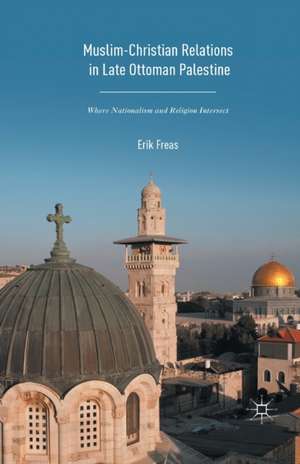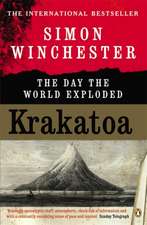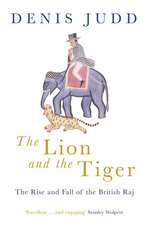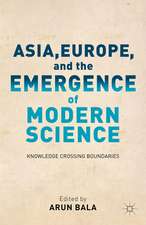Muslim-Christian Relations in Late-Ottoman Palestine: Where Nationalism and Religion Intersect
Autor Erik Freasen Limba Engleză Paperback – 30 ian 2020
| Toate formatele și edițiile | Preț | Express |
|---|---|---|
| Paperback (1) | 469.55 lei 6-8 săpt. | |
| Palgrave Macmillan US – 30 ian 2020 | 469.55 lei 6-8 săpt. | |
| Hardback (1) | 644.18 lei 6-8 săpt. | |
| Palgrave Macmillan US – 22 feb 2016 | 644.18 lei 6-8 săpt. |
Preț: 469.55 lei
Preț vechi: 552.42 lei
-15% Nou
Puncte Express: 704
Preț estimativ în valută:
89.85€ • 94.06$ • 74.34£
89.85€ • 94.06$ • 74.34£
Carte tipărită la comandă
Livrare economică 05-19 aprilie
Preluare comenzi: 021 569.72.76
Specificații
ISBN-13: 9781349959846
ISBN-10: 1349959847
Ilustrații: VII, 314 p.
Dimensiuni: 140 x 216 mm
Greutate: 0.38 kg
Ediția:1st ed. 2016
Editura: Palgrave Macmillan US
Colecția Palgrave Macmillan
Locul publicării:New York, United States
ISBN-10: 1349959847
Ilustrații: VII, 314 p.
Dimensiuni: 140 x 216 mm
Greutate: 0.38 kg
Ediția:1st ed. 2016
Editura: Palgrave Macmillan US
Colecția Palgrave Macmillan
Locul publicării:New York, United States
Cuprins
1. Becoming 'Arab'.- 2. The Sick Man of Europe.- 3. Knowing One's Place.- 4. Christians and Reform.- 5. The Empire Is Open for Business.- 6. Open Season for Evangelizing.- 7. Getting Better All the Time.- 8. Arab Nationalism, Abdülhamid II and the CUP.
Recenzii
"Interest in the relationship between Christians and Muslims in Palestine in the twentieth century has hit an all-time high. Freas pulls together many disparate pieces to provide the prequel to that story as he offers detailed explanations with evidence, context, and depth for what are usually simplistic assumptions about that nineteenth century. Muslim-Christian Relations in Late-Ottoman Palestine is certainly a worthy addition to the literature in the field." – Noah Haiduc-Dale, Assistant Professor of History, Centenary College, New Jersey, USA; author of Arab Christians in British Mandate Palestine: Communalism and Nationalism, 1917-1948
Notă biografică
Erik Freas is Assistant Professor of Modern Middle East History at the Borough of Manhattan Community College, City University of New York, USA. Previously he taught at the University of Illinois at Springfield, USA. He earned his PhD in Modern Middle East History at the University of St. Andrews, Scotland. His research focuses primarily on Muslim-Christian Arab relations in Palestine during the Mandate and late-Ottoman periods, with respect to which he has published several articles.
Textul de pe ultima copertă
Numerous factors underlie the dynamic shaping of present-day Muslim-Christian Arab relations as well as the formulation of Arab national identity. In Muslim-Christian Relations in Late-Ottoman Palestine, Erik Freas argues that paramount among these were three developments that transpired in the late-Ottoman period, of which Palestine provides a microcosm. One is that non-Arabic speaking Christian communities began to define identity in nationalistic terms on the basis of faith. Also, with their transformation into politically equal Ottoman citizens, Christians were more intent on taking advantage of their new rights rather than fulfilling civil obligations. Finally, for most Muslim Arabs, the transition from identifying primarily as 'Muslim' to 'Arab' in terms of their broader communal affiliation often entailed little change in how they experienced communal identity in the day-to-day. Taken together, the analysis of these developments provides an in-depth examination of Muslim-Christian Arab relations in Palestine during the nineteenth century as well as the long-term implications of these changes on the manner of Arab national identity's formulation.
















